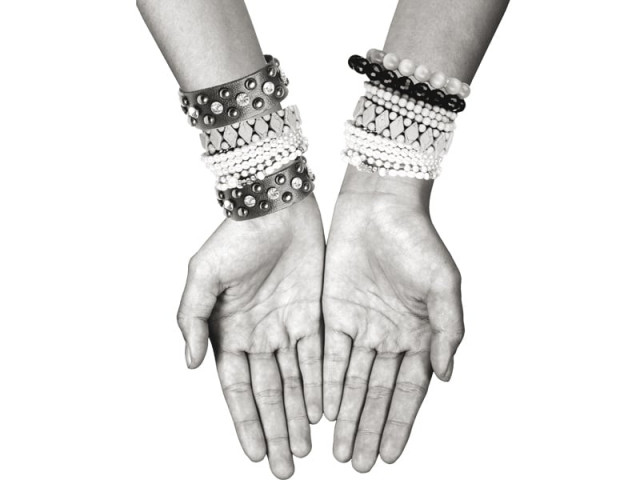Healing through pain: Silent sufferers
A step into the world of silent sufferers who resort to dangerous coping mechanisms.

A step into the world of silent sufferers who resort to dangerous coping mechanisms . DESIGN: KIRAN SHAHID
People who resort to deliberate self-harm can be divided into two broad categories — those who are attempting suicide and those who are using self-harm as a survival strategy to gain temporary relief from emotional pain. For the latter, it develops into an addiction as the pain provides them temporary release. The physical injury releases beta endorphins into the brain, which reduces tension and creates a feeling of temporary calm and control.
“My parents’ marriage was not a happy one and often, they would involve me in their arguments. At the age of 14, I started cutting myself using my father’s razor blades and [the pain] brought me instant relief,” admits Hassan, a former self-injurer.
The behaviour can be triggered due to anything from family disputes to conflict with the opposite sex, marital problems, chronic illness or financial difficulties.
“Research indicates that people who have been abused sexually in childhood feel a lot of guilt [and] feel responsible for the abuse against them. Harming themselves is an attempt to punish themselves, which is soothing in the moment,” says Tabassum Alvi, a psychiatrist at the Jinnah Medical College. Life Signs, a UK-based user-led voluntary organisation states that there is a strong link between self-injury and low self esteem.
A study conducted by the Rawalpindi Medical College in 2006 shows that the reported incidents of deliberate self-harm in Pakistan is about eight persons per 100,000 men and women. However, updated data on cases of deliberate self-harm in Pakistan is not available as it can be seen as a suicide attempt, which by law is a criminal offence punishable by a jail term or a fine. Most cases also go unreported due to fear of bringing shame to the family, or being subjected to a police inquiry.
The easy availability of medicines makes self-poisoning one of the easiest and most common methods of self-harm in the country. Drugs like benzodiazepines or aspirin, bleach, bathroom cleaners, rat-killing pills, lice powder and varnish are frequently used.
According to research conducted by Dr Muhammad Shahid at the Aga Khan University, impoverished married housewives, less than 35 years of age, are at the greatest risk of self-harm in Pakistan. Alvi attributes this trend to stress, having too many children in quick succession and hormonal changes which lead to depression. However, in recent years, an increasing number of men in the country are also self-harming due to frustration, abuse and poverty.
Even though the road seems dark, it is not hopeless and complete recovery is possible. One of the most effective ways is to seek help through therapy and develop alternative coping methods of dealing with the pain.
“I really wanted to stop cutting because I was tired of having to hide my scars and being in constant physical and emotional pain. So whenever I felt the urge to cut, I would instead try to express my pain by drawing and writing. Gradually, my sketchbook replaced my razor blade,” says Sheela, a former self-injurer.
A common misconception about self-harm is mistaking it as an attention-seeking tactic. In most cases, people who engage in this behaviour are very self-conscious and wary of asking for help. Hence, a strong support network of family and friends can play a critical role in recovery.
Rakshanda Khan is currently under training for humanistic integrative counseling.
Published in The Express Tribune, Sunday Magazine, November 24th, 2013.



















COMMENTS
Comments are moderated and generally will be posted if they are on-topic and not abusive.
For more information, please see our Comments FAQ